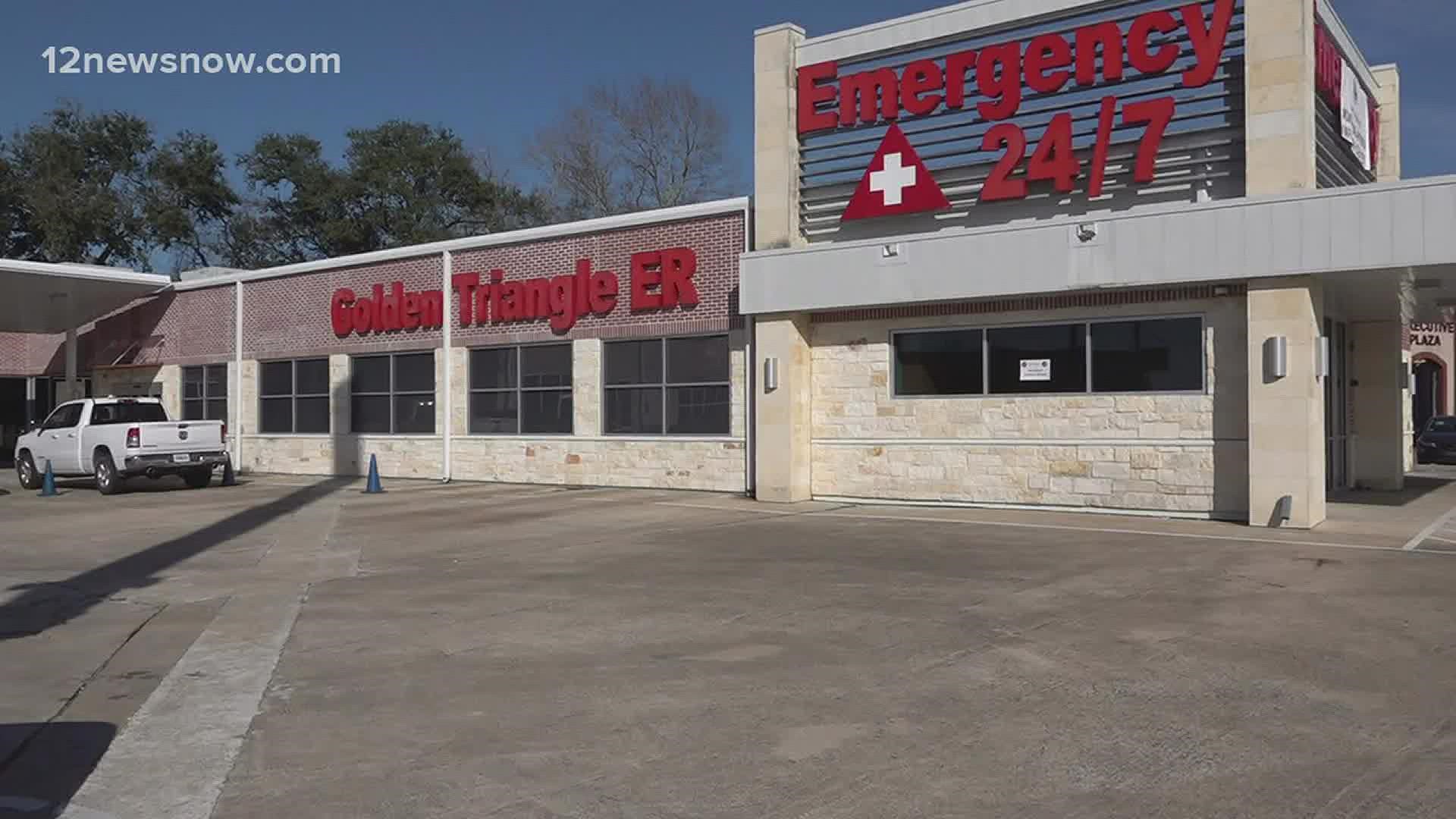BEAUMONT, Texas — Southeast Texas health professionals are working hard to keep people out of the hospitals during the current COVID-19 surge.
The Southeast Texas Infusion Center has seen a recent increase in the number of patients being treated per day. Health experts said the center is treating about 90 people per day.
“We are a little frustrated, but we are continuing,” Todd Senters, associate vice president of operations at Baptist Hospitals of Southeast Texas, said.
In addition to an increased number of patients, the center is also dealing with a limited supply of the drug Sotrovimab. Sotrovimab is one of the most effective drugs against the omicron COVID-19 variant, according to Senters.
Health experts are doing the best they can to adjust and move forward. Senters said they are tapping into other resources to get additional doses, such as Bamlanivimab.
“We’ve called upon other state resources and looking regionally to keep that supply coming in,” Senters said.
With about 20 no shows per day, the infusion center has had enough doses of Sotrovimab for patients despite the low supply. Patients are treated based on their conditions.
“We are saving the Sotrovimab for those who are absolutely most at need, the highest risk, those who pose the greatest potential for developing very severe COVID-19,” Senters said.
Despite the low supply of the antibody drug, Senters said the infusion center has successfully kept hospitals from filling up with COVID-19 patients.
The center has helped Southeast Texans like Orange County Commissioner Robert Viator, who tested positive for COVID-19 in September of 2021. Viator got an infusion the day after he tested positive.
“I started feeling better,” Viator said. “The cough started subsiding. It pretty well was gone within two days. And from there, I never had any fever or any other symptoms.”
Southeast Texas health professionals hope the infusion center serves as a model for handling future situation similar to the pandemic.
“Hopefully, our medical care in the future will also have more of a regional affect, where we're able to care for each other as a community in times like this where we do need to bring our resources together,” Senters said.
Senters believes the infusion center will likely stay open for another three to four months, but it could close before then based on the need in the area.

